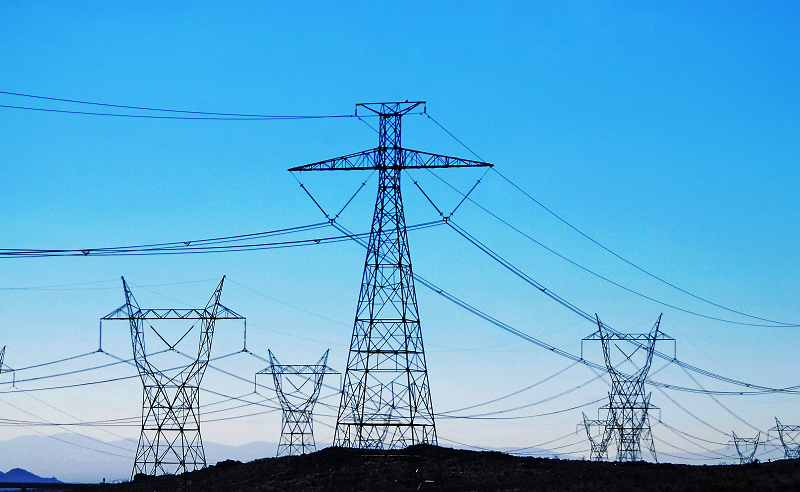Technology plays a central role in the design and functionality of buildings. From security systems and data networks to energy-efficient controls and smart building solutions, every modern building relies heavily on a variety of low voltage systems.
But to make sure these systems work seamlessly and efficiently, they must be installed and maintained properly. This is where low voltage wiring contractors come into play.
Low voltage wiring is the foundation of all these technologies, ensuring reliable communication, security, and automation systems.
In this blog, we’ll explore why low voltage wiring is considered the backbone of your building’s technology and how working with experienced low voltage wiring contractors can help enhance the efficiency, functionality, and safety of your property.
What is Low Voltage Wiring?
Low voltage wiring is the type of electrical wiring used to carry signals and power to various systems within a building that operate at a voltage lower than that of standard electrical systems. These systems typically operate at voltages below 50V, and examples of low voltage wiring include:
- Data networks: Ethernet cables, fiber optics, and telephone lines.
- Security systems: Alarm systems, surveillance cameras, and access control.
- Building automation: Climate control, lighting, and energy management systems.
- Telecommunications: Internet, TV, and phone lines.
These systems are vital to keeping a building running efficiently, securely, and in a way that meets the needs of its occupants. However, low voltage wiring requires careful planning, design, and installation to ensure optimal performance.
Why Low Voltage Wiring is the Backbone of Your Building’s Technology
1. Supports Critical Communication Systems
A building’s communication infrastructure, including internet, phone lines, and networking systems, relies heavily on low voltage wiring. Low voltage wiring contractors ensure that data networks are properly set up for smooth communication between devices, ensuring that information flows seamlessly throughout the building.
High-quality low voltage wiring is essential for reliable, high-speed internet and phone connections. Whether it’s for a corporate office, residential home, or industrial site, proper installation of data cables and networking equipment provides the backbone for effective communication and ensures the building operates without interruptions.
Benefits of Reliable Communication Systems:
- Ensures high-speed, reliable internet connectivity.
- Facilitates smooth communication between staff, clients, or residents.
- Enhances data security through optimized network infrastructure.
2. Enables Efficient Security Systems
Security is a top priority in any building, and low voltage wiring plays a pivotal role in installing and maintaining security systems. Surveillance cameras, alarms, and access control systems all rely on low voltage wiring for power and signal transmission.
Low voltage wiring contractors ensure that these systems are installed correctly and function efficiently, providing continuous monitoring and alerts in case of security breaches. The reliable wiring of these systems enhances the safety of occupants and helps prevent theft, unauthorized access, and other security issues.
Benefits of Secure Buildings:
- Provides real-time surveillance and access control.
- Reduces the risk of theft or unauthorized entry.
- Improves overall safety by ensuring all systems are fully functional.
3. Powering Smart Building Solutions
Modern buildings are becoming smarter every day, with low voltage wiring being at the heart of many smart building solutions. From smart thermostats and automated lighting to energy management systems and smart appliances, all these technologies depend on low voltage wiring for proper installation and operation.
Low voltage wiring contractors ensure that these systems are integrated correctly, providing energy-efficient solutions that reduce costs and enhance comfort. For example, automated lighting and climate control systems can help lower energy consumption by adjusting settings based on occupancy patterns, reducing waste and contributing to sustainability efforts.
Benefits of Smart Building Solutions:
- Optimizes energy use through intelligent systems.
- Enhances occupant comfort with personalized temperature and lighting settings.
- Reduces utility bills by utilizing energy-efficient technologies.
4. Improved Control Over Building Functions
Low voltage wiring is key to the management and control of a building’s infrastructure. Automated systems for HVAC (heating, ventilation, and air conditioning), lighting, and energy management systems are all powered through low voltage wiring. These systems enable building owners to monitor and adjust conditions to improve comfort, reduce energy consumption, and ensure operational efficiency.
By installing low voltage systems, low voltage wiring contractors help ensure that all building functions are well-integrated and easy to control. This centralization of control improves operational efficiency, reduces the likelihood of system malfunctions, and enhances the building’s overall performance.
Benefits of Centralized Control:
- Provides centralized control over building systems.
- Enhances operational efficiency and reduces energy waste.
- Offers real-time monitoring and control of critical systems.
5. Ensures Future-Proofing and Flexibility
As technology continues to evolve, buildings need to be able to adapt to new innovations. Low voltage wiring provides the flexibility needed to accommodate future upgrades and new technologies without requiring major overhauls. Professional low voltage wiring contractors can design and install wiring systems that are easily upgradable, ensuring that the building is future-proof and capable of handling new technologies as they emerge.
With the rapid pace of technological advancements, it’s essential to have infrastructure in place that can support innovations like 5G networks, smart devices, and building automation systems. Low voltage wiring is the foundation that allows these technologies to be integrated easily, ensuring that the building remains relevant and adaptable.
Benefits of Future-Proofing:
- Allows for easy integration of new technologies and upgrades.
- Reduces the need for expensive and disruptive rewiring in the future.
- Ensures that the building stays current with evolving tech trends.
Conclusion
Low voltage wiring is the backbone of every modern building’s technology infrastructure. From providing reliable communication and security to powering smart building solutions and ensuring energy efficiency, these systems play a pivotal role in the daily operations of residential, commercial, and industrial buildings.
By working with professional low voltage wiring contractors, you ensure that your systems are installed correctly, efficiently, and safely. With their expertise, you can achieve better performance, higher energy efficiency, enhanced safety, and future-proof your building’s technology infrastructure for years to come.
Investing in high-quality low voltage wiring services is not just about keeping your building functional—it’s about laying the foundation for smarter, more efficient operations that benefit both the building’s occupants and its owners.












